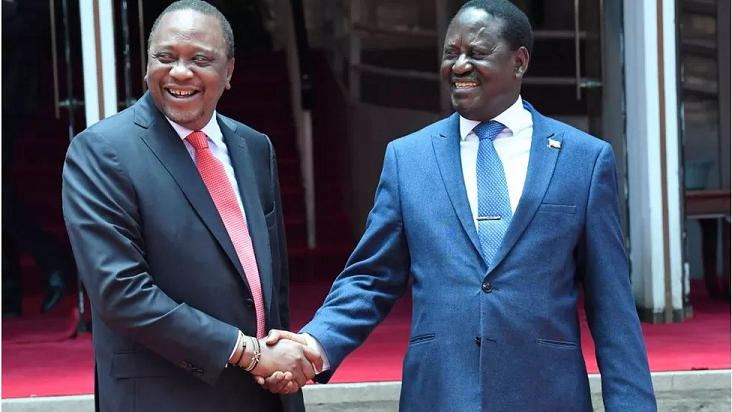The suspects in the killings of at least five pro-democracy protesters in Sudan’s capital, Khartoum, have been arrested, the military council says.
Gen Mohamed Hamdan Dagalo said the men had signed confessions without giving details about their identities or how many they were.
A member of the security forces was also killed in Monday’s violence.
Gen Dagalo was speaking before talks between the military and the opposition were expected to resume.
Sudan has been governed by a transitional military council since President Omar al-Bashir was overthrown in a coup last month.
Protesters have been demanding full civilian government and the killings happened at a sit-in outside military headquarters in Khartoum.
Demonstrators said soldiers were responsible, but the army blamed “saboteurs”.
The authorities believe they have detained the right people.
“Juridical experts have seen footage from two cameras that filmed them. And if [you think] we are lying, the cameras don’t lie,” said Gen Dagalo, who is also known as Hemeti.
Demonstrators have been occupying the square in front of the military headquarters since 6 April, five days before the president was overthrown by the military.
Initially, talks between the ruling generals and the protest organisers had shown little sign of progress.
However, just before Monday night’s violence, both sides announced they had agreed on the structure of a new administration and a three-year transition period to civilian rule.
But they still need to decide on the make up of what has been called the sovereign council, which will be the highest decision-making body in the transition period.
They cannot agree on whether civilians or the military should have the majority of positions.
Talks, postponed as the army complained that barricades had been erected outside the designated protest area, are due to restart on Sunday evening.
Road to transition
- 19 December 2018 – Protests erupt after fuel and bread price rises announced
- 20 December – Demonstrators in the capital, Khartoum, strike an anti-government tone chanting “freedom, peace, justice”
- 22 February 2019 – President Omar al-Bashir declares a state of emergency and dissolves the government
- 24 February – Protests continue as security forces respond by firing live bullets
- 6 April – Activists begin sit-in at military headquarters in Khartoum vowing not to move until Mr Bashir steps down
- 11 April – army generals announce that Mr Bashir has been toppled but sit-in continues as people demand civilian rule
- 17 April – Mr Bashir is taken to a prison in Khartoum
- 20 April – Talks between the military rulers and civilian representatives begin
- 13 May – Shooting outside the military headquarters leaves six people dead
- 14 May – Military and civilians announce a deal on a three-year transition period
- 16 May – Talks postponed as military demands some barricades are removed
How did we get here?
In December, protesters started demonstrating against a government decision to triple the price of bread. The protests soon morphed into widespread anger against the president’s 30-year rule, led by doctors.
Five weeks into the protests, on 17 January, witnesses said state forces fired live ammunition at protesters and killed a doctor.
He had been treating injured protesters in his home in Khartoum when police fired tear gas into the building.
A witness told the BBC that the doctor had walked out with his hands in the air, told the police he was a doctor and was instantly shot.
He is one of dozens of people killed during the anti-government protests.
The protesters later staged a sit-in outside the military headquarters to demand the military force the president out.
A military council assumed power of the country on 11 April, but demonstrators are insisting that it hands over to a civilian administration.
-BBC





